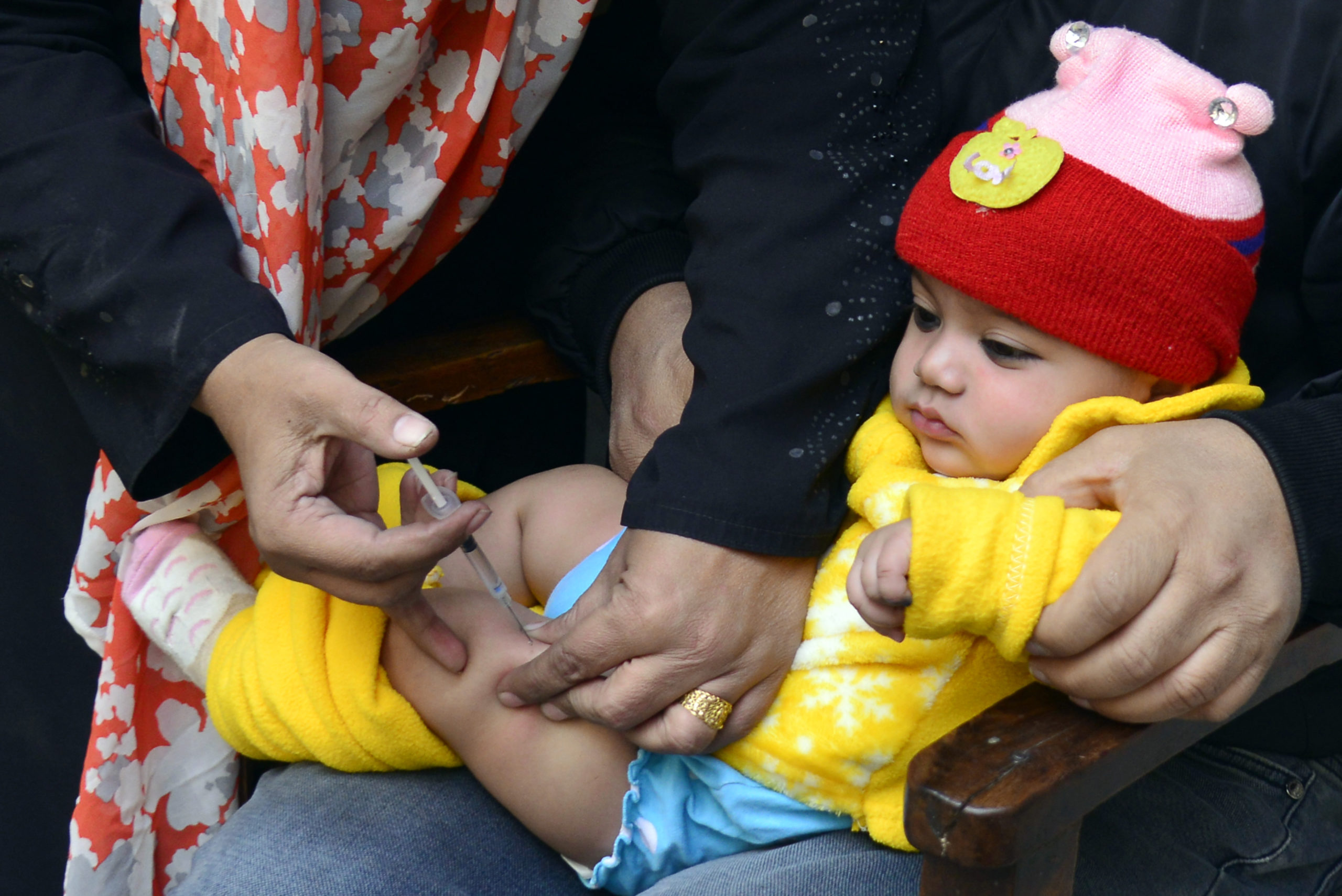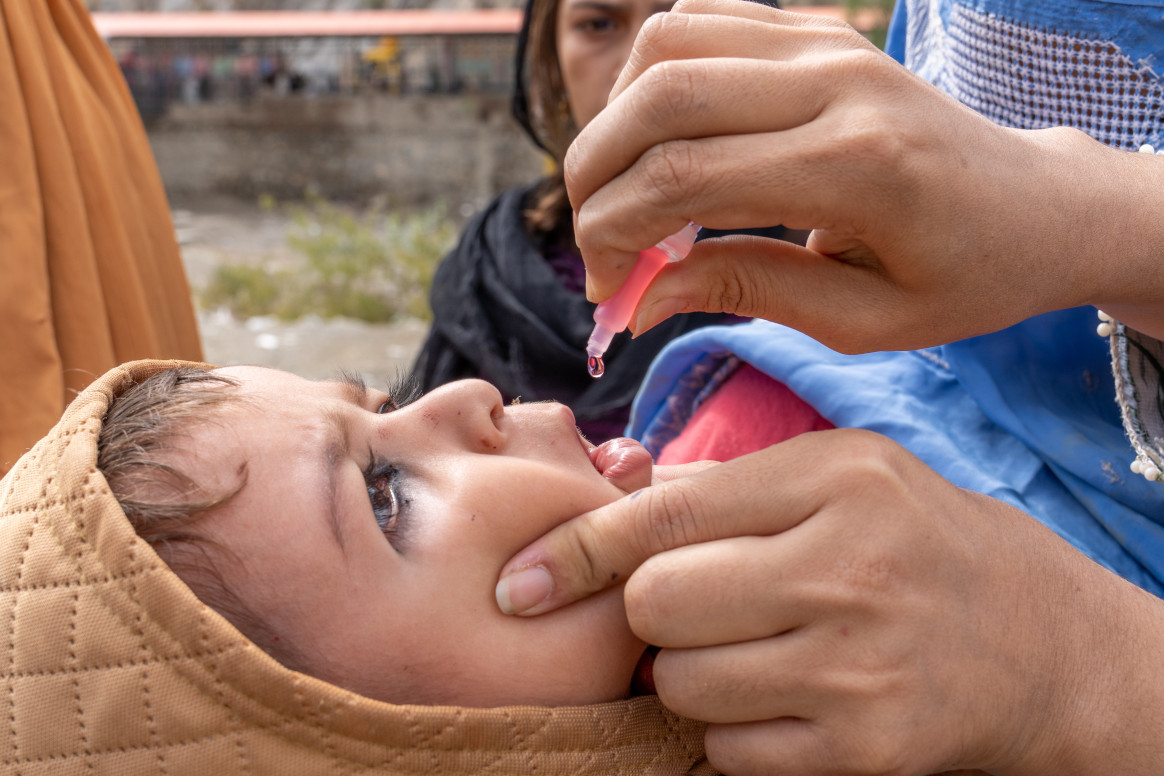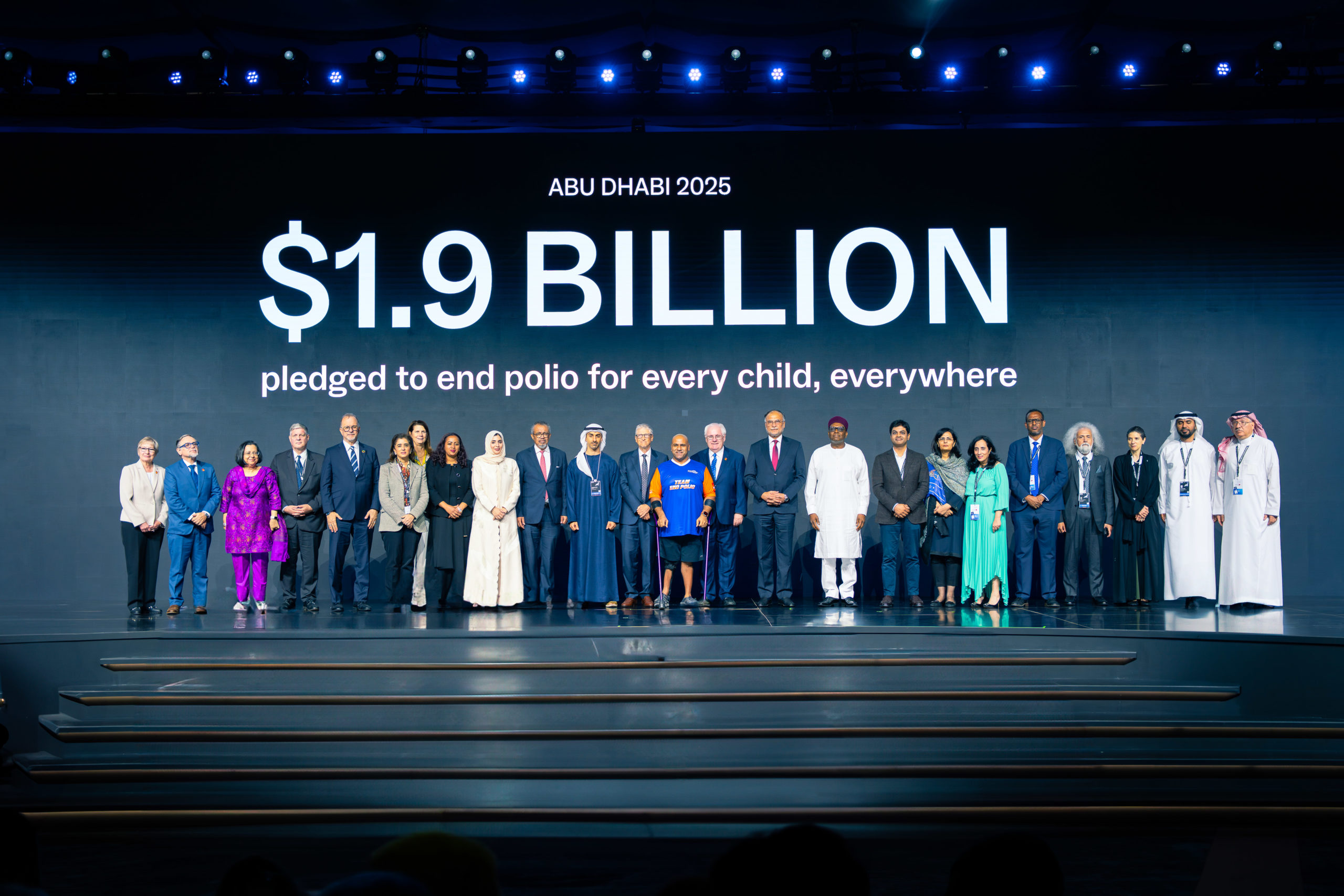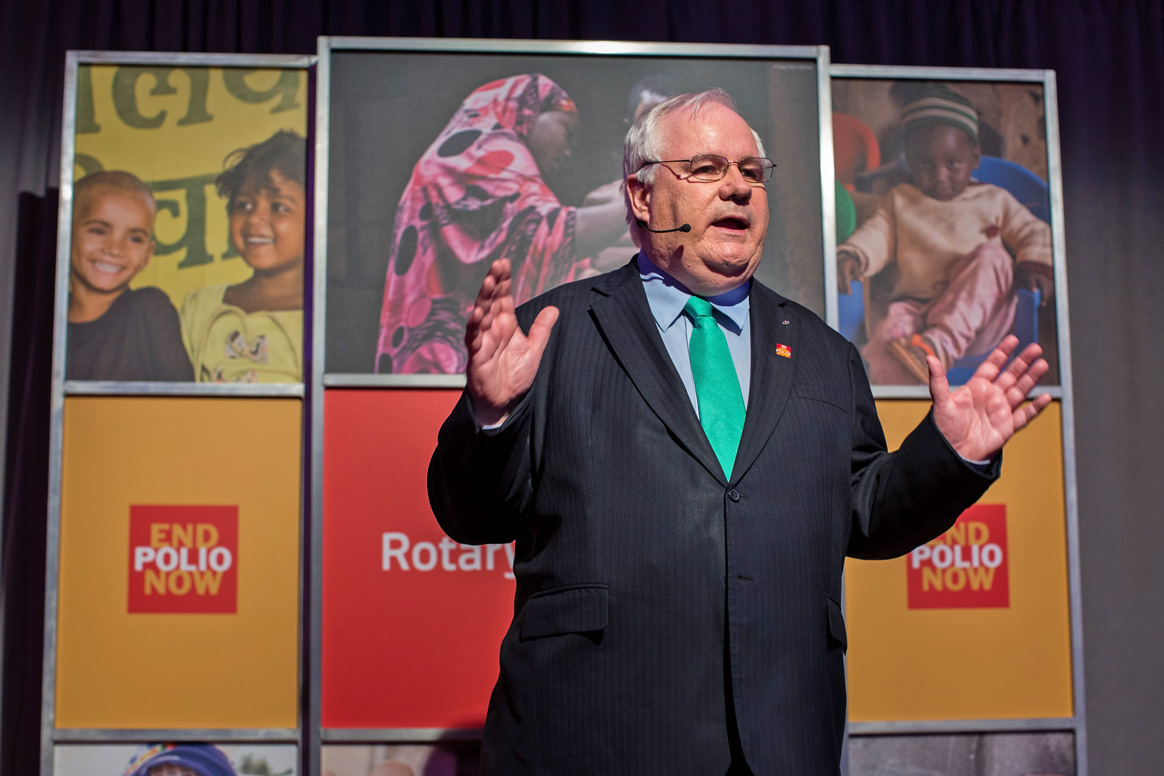BERLIN 17 October 2024 – For more than three and a half decades, governments and health workers, with support from the Global Polio Eradication Initiative (GPEI), have made unprecedented progress toward the promise of a polio-free world. Thanks to these collective efforts, more than 20 million people are walking who would otherwise have been paralyzed by this dreadful disease. Billions of children have been protected with lifesaving immunizations. Five of the six World Health Organization Regions are free from wild poliovirus.
The work of the polio program is now concentrated in some of the most complicated and fragile settings in which to deliver basic healthcare. Challenges to reaching all children with vaccines are serious, ranging from persistent violence to climate emergencies. The transmission of polio in conflict-affected areas in Gaza, Sudan, and Yemen is a stark reminder that where conflict debilitates health and sanitation systems, polio will inevitably appear unless we eradicate all forms of the virus.
Recognizing remaining challenges, the GPEI’s Polio Oversight Board (POB) made the difficult but necessary decision in July to extend the timelines needed to achieve polio eradication—to the end of 2027 for wild poliovirus and the end of 2029 for type 2 variant poliovirus. That decision was informed by critical analysis and expert consultations, and extended timelines require additional financial resources to support ongoing eradication activities.
Yesterday, the POB determined that the total funding needs of the extended 2022-2029 strategic period are US$6.9 billion, an increase from the US$4.8 billion projected for the 2022-2026 strategic period. To date, donors have already committed an incredible US$4.5 billion to the strategy, but US$2.4 billion more is urgently needed to overcome today’s challenges and make polio history.
Critically, these funds will make possible the urgent and vital tactical shifts in the program’s approach that are necessary to deliver a polio-free world, allowing the GPEI to:
- Reach more children with polio vaccines by working with polio-affected country leaders to strengthen program implementation.
- Adapt to today’s challenges by deploying innovative tools like novel vaccines and surveillance methods to further strengthen outbreak response.
- Hold ourselves to the highest standard by improving accountability at all levels, from global leadership to field managers.
- Work with routine immunization programs by integrating polio services wherever possible.
- Deepen our relationships with the people we serve by strengthening community engagement.
These shifts are being driven by the expertise of GPEI partners coupled with a program-wide commitment to double down on the toughest but most critical challenges standing between us and a future without polio.
Shortcomings in funding or fully carrying out these efforts would come with serious consequences. Without dedicated eradication efforts, within a decade, many thousands of children around the world could once again be paralyzed or die from polio each year. This is an unacceptable future. More than ever, donor and polio-affected country governments must offer their renewed support to prioritize these efforts to reach all children with lifesaving vaccines and strengthen health systems along the way.
With strengthened support and collaboration, together we can deliver a world where all children, families and communities are forever free from polio.
About the Global Polio Eradication Initiative
The Global Polio Eradication Initiative is a public-private partnership, spearheaded by national governments, WHO, Rotary International, the US Centers for Disease Control and Prevention, UNICEF, the Bill & Melinda Gates Foundation and Gavi, the Vaccine Alliance. Since its launch in 1988, this partnership has helped prevent more than 20 million cases of paralysis, prevented more than 1.5 million childhood deaths and reduced the incidence of wild poliovirus by 99.9 percent, from more than 350,000 cases in more than 125 endemic countries to just two endemic countries in 2024.



